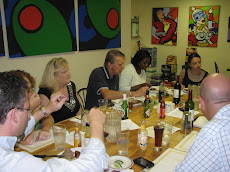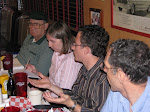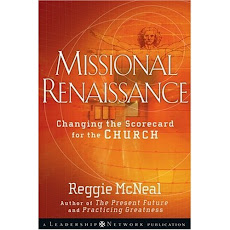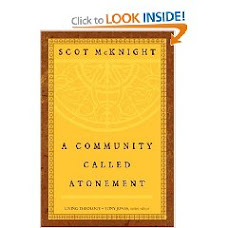 Public policy: “The set of decisions that we make as a society about how we care for one another, our communities and the land.”
Public policy: “The set of decisions that we make as a society about how we care for one another, our communities and the land.”This definition was taken from a workshop on “Getting to Justice” as part of the Christian Community Development Association (CCDA) 20th Annual Conference in Miami http://www.ccdamiami08.org/ last Saturday. I joined Robin, Matt, Beth & Flavio there for the last day of the conference, along with other friends from Love Bags.
I am committed to avoiding expressing partisan political opinion on this blog. This post will be as close as I get to doing that on the Saturday before a historic election, but still remaining consistent with that guideline. However, any discussion of making decisions about public policy inevitably leads us to think about politics, and how Bill Moyers once described it: “Ideas are great arrows, but there has to be a bow. And politics is the bow of idealism.” Partisan comments are welcome by the way, as long as they are respectful.
I was asked to summarize my first experience at CCDA for a new colleague who wanted to know what went on there. I told her that 2,300 persons for faith came together to learn about, and put into practice, such things as racial reconciliation, social justice and how to advocate for issues based on principles such as that “government budgets are moral documents.” Here are some take-aways:
John Perkins (pictured at top) is the founder of CCDA. He spoke about racial reconciliation and shared a story from when he was a pastor in Mississippi in the 1960s. He said he started meeting with two white pastors in his community to discuss ways to work together to share the Gospel in their small town. They knew that only the Gospel (in its fullness) could lift people out of the various forms of bondage they saw all around them. Racism is a huge form of bondage and the two white pastors were confronted with such vicious hostility from their congregations to this simple idea of interracial Christian cooperation…that they both eventually committed suicide.
Brian McLaren, http://www.brianmclaren.net/ provocative as ever, followed Perkins and asserted that, “The God of the scriptures is primarily a God who liberates slaves.” I think of Egypt and Babylon and Rome and the many in bondage who Jesus healed. He led us through some stark data on war, poverty, consumerism and pollution and said that the dream of God is a world restored to “shalom.” Shalom was the big word of the conference and the closest thing I could compare it to is Scot McKnight’s “Atonement in all four directions,” - peace with God, within ourselves, with one another and with God’s creation. McLaren said, “We’re looking for a plan, and party, a program, a candidate or a strategy to get us to shalom. And we need them all. But above all we need to live in the way, the heart and the attitude of Jesus: with our families, our parents, our children, our churches, in our denominations and movements, in our community and our nation.” He closed reminding us of Philippians 2, “Your attitude should be the same as that of Christ Jesus.” I later thought of where it adds, “…in which you shine like stars in the universe...” when McLaren applied exegesis to the lyrics of Woodstock by Joni Mitchell to help us understand the situation we find ourselves in: http://www.lyricsfreak.com/j/joni+mitchell/woodstock_20075381.html
We are stardust
Billion year old carbon
We are golden
Caught in the devils bargain
And we've got to get ourselves
Back to the garden
In the “Getting to Justice” workshop, a Baptist pastor (I arrived late and didn’t get his name) with Sojourners http://www.sojo.net/ challenged us to go beyond soup kitchens and also work for systemic change. He listed kinds of “faith” that keep our focus too narrow to do so:
Privatized faith: It’s just me and Jesus
Prosperity faith: Conspicuous consumption is evidence of blessing
Apolitical faith: Withdrawal from the the process
Apocalyptic faith: Exonerates us from responsibility in the here & now
Constantinian faith: Religion of the empire
We were reminded that the Gospel is not just “fire insurance,” but an ushering in of the Kingdom of God now and for eternity, and of the words of Rev. Martin Luther King, Jr., “The church must be reminded that it is not the master or the servant of the state, but rather the conscience of the state. It must be the guide and the critic of the state, and never its tool.” We’re not called to create a “religious left” as a balance or counter to a “religious right,” he said, but to interject our faith perspectives to help transform politics. One speaker hit home when he told us, “We all capitulate to a system that says it’s O.K. to be mentally ill and living on the street.”
Finally, Shane Claiborne, http://www.thesimpleway.org/shane/ author of Jesus for President, told us to ask him who he voted for on November 5th, but suggested we listen more often to our neighbors on such matters (Shane moved into inner-city Philadelphia). He started out comparing the symbols used in the Gospel of Mark with symbols of the Roman Empire at the time when “anti-imperial” talk could get you imprisoned or executed. The symbolism used during Roman occupation was reminiscent to me of spirituals sung by slaves in the American South which allowed them to communicate secret messages and information to each other about the Underground Railroad. He also reminded us of some of the criticisms leveled at the early Christian church, such as, “They love each other before they even know each other!” That should be the kind of rap we earn today. Instead, I learned that 90% of Rwandans, in both tribes, were “Christians” at the time of the horrible 1994 genocide. Shane told of growing up in East Tennessee in a Christian family and how he learned to be “anti-gay,” until one day when he met a gay kid who told him that God had made a mistake when He made him and that he wanted to kill himself. Shane reminded us that the closer we get to God, the less we should want to cast stones.
I am not normally among the paparazzi but I did take some pics http://emergentchristian.meetup.com/29/photos/466828/ and I did (with some help :^) ask Brian McLaren to sign my copy of The Secret Message of Jesus. I loved what he wrote, “to Steve – plotting goodness!” That’s how we should all want to be remembered.
So, informed by Christian values, these are some of the kinds of issues we don’t commonly hear from North American Evangelicals around election time. If you haven't been a part of the work of CCDA before it’s worth checking out. Their 2009 conference will be Oct. 21-25 and the theme is, "Kingdom People Pursuing Kingdom Priorities."
Plotting goodness!
Steve


















